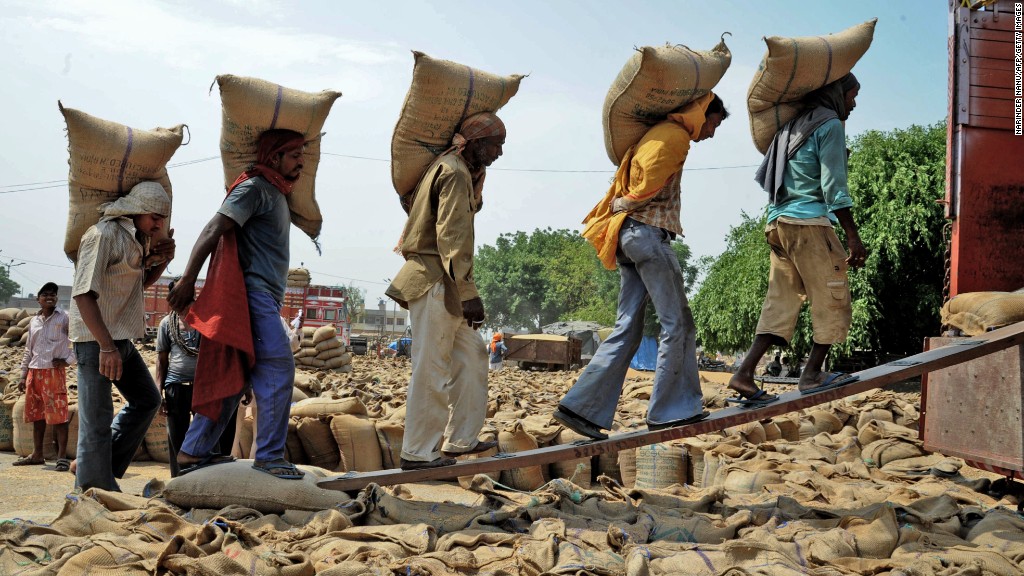
Prime Minister Narendra Modi is hitting back at critics who say India's economic boom is the result of plummeting oil prices rather than sound government policies.
"For India to be at the top of global growth tables is an unusual situation," Modi said Monday in New Delhi. "Obviously, there are some who find that difficult to digest and come up with imaginative and fanciful ideas to belittle that achievement."
India's economic growth is outpacing that of all other large nations at around 7.5%. Meanwhile, the other members of the original BRIC grouping -- Brazil, Russia, and China -- have all lost momentum.
Yet there is growing unease over India's prospects: The country's GDP numbers have diverged from other indicators, and their quality has been questioned. Indian companies are carrying high levels of debt and many have failed to snap out of their funk.
Related: How India makes its budget
Critics say that economic reality has been disguised by low oil prices, which have slashed India's heavy bill for energy imports. Modi rejected that argument on Monday.
"Many other emerging economies also depend on imported oil," Modi said. "If oil prices were the driver of success, those countries would all be showing similar results. But they are not."
"There are some who remain confused and have said that the growth rate does not 'feel' right," Modi continued, before ticking off a list of achievements claimed by his administration. He said foreign investment has increased, company credit ratings have improved overall and the government is on track to meet its deficit target.
Related: Is India's economic miracle a mirage?
Modi, who will celebrate his second anniversary as prime minister in May, has been responsible for much of the buzz around India's economy. He has spent huge amounts of political capital trying to push common sense economic reforms through parliament.
Modi has also packed his schedule with foreign trips, during which he exhorts global companies to "Make in India."
Yet many of Modi's promised reforms have failed to materialize. A proposal to establish a nationwide sales tax has languished in parliament, leaving India's byzantine system of state duties in place.
Related: 10 million Indians use his app
On another of Modi's priorities -- reducing red-tape for small businesses -- the needle has scarcely moved. India ranks 130th in a World Bank index measuring the regulatory burden on small firms, an improvement of just four spots from last year. The country's infrastructure remains woefully inadequate and will take decades to upgrade.
Still, Modi is eager to tie his policies to India's headline economic numbers.
"We have low inflation, a low balance of payments current account deficit, and a high rate of growth," he said. "This is the result of good policy, not good fortune."


